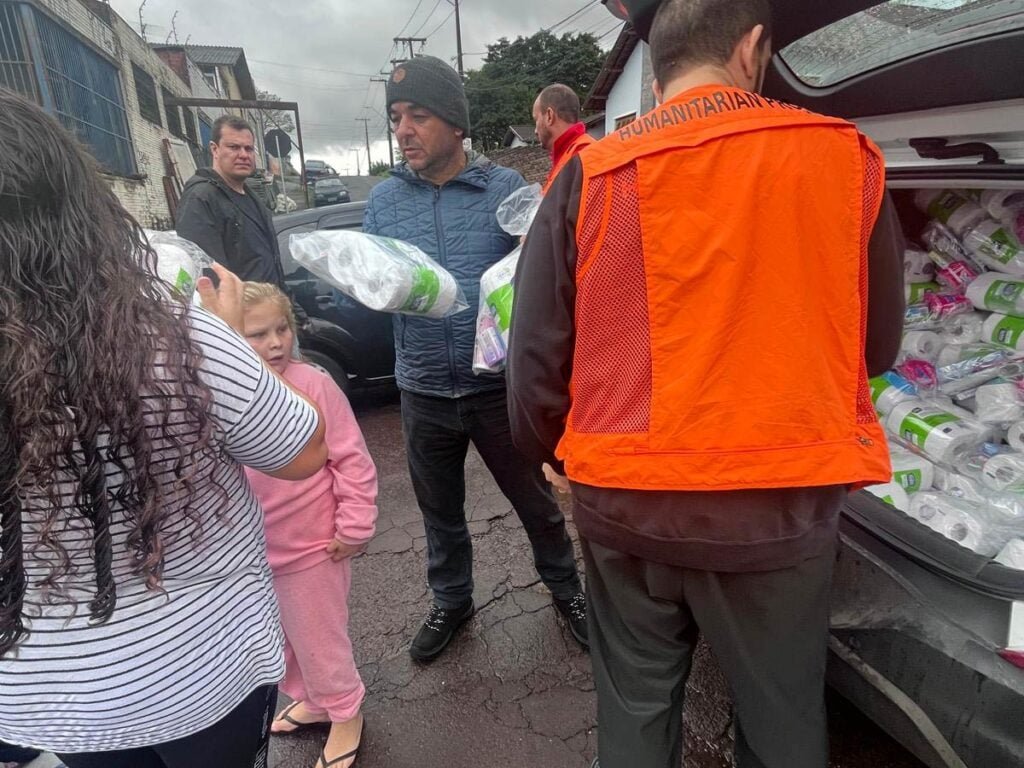Emergency Update: Convoy Providing Relief to Historic Flooding in Brazil
May 16, 2024 | 9:32 a.m.
The need in Brazil is growing. As the streets of entire cities in southern Brazil turn into slow-moving rivers and floodwaters rise, this continuous disaster has forced more than half a million people to flee their homes with nothing more than they can carry. And the rain is expected to continue.
The cold temperatures of Brazil’s approaching winter exacerbate an already difficult situation for families left vulnerable to the elements.
Convoy of Hope is responding to this need with winter clothing, food, water, mattresses, and blankets, as well as hygiene kits and food kits, which Convoy partners have already begun distributing to families in need.
Convoy team members have arrived in Brazil, further assessing the needs of families and working with local vendors and partners to ensure additional relief supplies make it as quickly as possible into the hands of those who need them most.
May 10, 2024 | 9:48 a.m.
Photo above: Volunteers gather in order to help residents evacuate from an area flooded by heavy rains, in Porto Alegre, Brazil, Tuesday, May 7, 2024. (AP Photo/Andre Penner)
Convoy of Hope is responding in Rio Grande do Sul, a southern state in Brazil that is experiencing the worst flooding it’s seen in 80 years. In collaboration with partners, Convoy is providing life-saving food kits and water to families affected by the floods.
Starting in late April, Rio Grande do Sul saw 70 percent of a month’s worth of rainfall within just four days. Heavy rain has continued into May and is expected to continue. The flooding has killed 100 people and displaced hundreds of thousands. More than 130 people are missing.
Hundreds of homes are already completely submerged under water. Survivors have been rescued from rooftops, rescue teams have used surfboards to paddle people through the floodwaters, and entire cities have been evacuated.
“I only took my documents, three shirts, two pieces of underwear, and my flip-flops. All the rest is gone,” Heitor da Silva, a 68-year-old man, told the Associated Press. “I already had very little, but that stayed there. When I go home, there will be nothing. Then what?”
With more than 230,000 people displaced, help is vital. Many people evacuated with nothing but the clothes on their backs or what they could carry in a small bag. While communities think about what recovery looks like after the rain stops and the floods recede, Convoy is there to meet their immediate needs.



